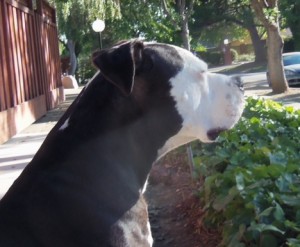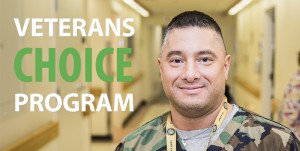SPC Florida Info Sessions
Tuesday, October 27, 2015
10:00 AM – 12:00 PM
Thursday, December 3, 2015
10:00 AM – 12:00 PM
Clearwater Campus
Clearwater Campus Room ES123
Check out the SPC Florida Trade website here and watch their video here.

SPC Florida Info Sessions
Tuesday, October 27, 2015
10:00 AM – 12:00 PM
Thursday, December 3, 2015
10:00 AM – 12:00 PM
Clearwater Campus
Clearwater Campus Room ES123
Check out the SPC Florida Trade website here and watch their video here.
George always wanted to be a soldier. When America went to war in Vietnam, George signed up and did two tours of duty. He was there for the Tet Offensive. He was exposed to Agent Orange. He saw things no person should see, and it’s all stored in his mind, layer upon layer of horror that he can’t talk about, even to other veterans.
George joined the Army as a Private, and he came home a Captain. He wanted to return to normal life and his family, but he found it impossible. Nightmares, fear, anxiety all led him where traumatized people go for escape: abuse of drugs and alcohol. George was a troubled man and finding a peaceful, normal life was out of the question. His training as an accountant led to work in industry, but eventually he lost everything and at one point was homeless. His story is not unusual, though each person has his own unique version.
It was years before George was able to seek help, and when he did he was diagnosed with, among other things, Post Traumatic Stress Disorder (PTSD). The psychiatrist who finally got through to George prescribed that he get a dog. And so he did. He was lucky when he found Rocky, a massive and loving Rottweiler who had been surrendered to a shelter.
The bond between man and dog was instant. They became [Rocky under tree] constant companions, and now George had someone in his life for whom he was responsible. He had to provide a stable home, food, and exercise for Rocky, and in exchange the dog gave his greatest gift, unconditional love. As anyone knows who has lived with a dog, this love can heal a broken human being.
George and Rocky were together for nine years. Listed as a Companion Dog with the National Registry of Companion Dogs, Rocky was allowed to live in places that usually do not accept animals. When Rocky finally died, the grief George felt was almost more than he could bear.

It took two years before he could consider another dog, but then a friend introduced him to a white faced pit bull named Smoke. Now when George drives anywhere, you see Smoke’s handsome face poking out the rear window of the Jeep, sniffing the wind, and smiling.
George says he’s been called the poster boy for PTSD because it took him so long to seek help and get the treatment he needs. He takes his meds faithfully, he attends AA meetings (sober 18 years), and he can always be counted on to reach out to anyone needing help. He walked a long road himself before he found Rocky; now he is a strong voice telling other veterans, “Get a dog.” George has learned that devoting yourself to another being who loves you just as you are–no conditions, no judgment–changes your life.
Companion dogs are waiting for adoption at local animal shelters. There are many pit bulls looking for homes, and they seem to be a perfect match for a strong person willing to give these powerful, loving dogs the exercise they need.
The good news for veterans and for shelter dogs is that there are organizations whose mission is to unite a companion dog with a veteran seeking help. These groups work carefully to choose the right dog and give the veteran and the dog all the training and support they need. George is not only a poster boy for PTSD, he is also an example of how a good man was able to find his way again with the help of a loving, loyal companion.
Author: Jeremy Robinson
To view the original article, click here.
Military Families Magazine is packed with useful and relevant articles to help active duty service members and their loved ones make transitions, stay in contact with loved ones, and make better decisions.
Six Florida military veterans and one military spouse tell their personal stories through dramatic performances on stage in this one-hour original documentary from WEDU PBS. Go behind the scenes of the theatrical process, following the diverse cast of service members for five months as they learn their dramatic cues, cultivate friendships and reconnect with emotional memories.
“Telling: Tampa Bay” is part of the national The Telling Project, founded in 2008 to help bridge the communication gap in an American society in which less than 1 percent of the population has served in the military over the past dozen years of war. Performance script is based on interviews with the veterans conducted by Jonathan Wei, founder of The Telling Project.
During the project, Florida military veterans tell their personal stories through dramatic performances on stage. To help deepen community understanding of their experiences, six veterans and one military spouse talk about how and why they served, the injuries and challenges they’ve had to overcome, and how they are transitioning back into civilian life.
A special performance of Telling: Tampa Bay was hosted by the Florida Humanities Council and WEDU PBS at the Berkman Family Broadcast Center on May 7, 2015 in the Hough Family Foundation Studio.
When U.S. Navy Veteran Quan Taylor found out about the 3D printer at the James A. Haley Veterans Hospital in Tampa, Florida, he immediately knew what to ask for.
“A bullet came out of my back but I couldn’t keep it, so I asked Jamie if he could print me a bullet so I could remember what I went through,” he said.
Now, he’s hoping to design an adaptive game controller so he can play video games with one of his friends, a fellow VA patient who has limited use of his hands.
Jamie Kaplan, a VA recreational therapist says that the ability to create with the 3D printer has changed the way his Veteran patients think. Now, they are no longer limited to available adaptive devices but rather what they can imagine.
While 3D printers are not common in VA hospitals yet, that could change.
“Every VA in the country is a teaching hospital, a lot of people don’t realize that many medical advancements started in the VA system,” Kaplan said.
As of now, the printed products are small, but provide hope to provide Veterans of what is possible.
“You can do anything. Don’t let your wheelchair or situation limit you in the things that you do,” Quan said.
Click here for more details.
The Tampa VAMC leadership
Jamie and Quan in front of the 3d Printer at Tampa VAMC
Two products printed at the Tampa VAMC

Public Law 114-41, the Surface Transportation and Veterans Health Care Choice Improvement Act of 2015, was signed into law on July 31, 2015, and aims to “provide resource flexibility to the Department of Veterans Affairs for health care services and other purposes.” Thanks to the new law, VA is able to enhance the Veterans Choice Program in a number of ways, including expanding eligibility to all enrolled Veterans.
The department will implement these changes in several phases, with the first phase being effective immediately. Veterans are no longer required to have been enrolled in VA health care on or before August 1, 2014, in order to meet basic eligibility requirements for the program. If a Veteran is enrolled in the VA health care system and meets one of the specific eligibility criteria, he/she may be eligible for the program. In other words, any Veteran who is enrolled in VA health care, regardless to when they enrolled, may now be eligible for the Veterans Choice Program.
Along with being enrolled in VA health care, Veterans must meet at least one of the additional wait times, distance or other criteria in order to be considered eligible for the Veterans Choice Program. You can find additional details on the full eligibility criteria here. This modification, and the additional changes that will follow in the upcoming months, serve a critical purpose of allowing greater numbers of Veterans access to care under this Program. VA is continually working to make improvements to the Veterans Choice Program, so please check www.va.gov/opa/choiceact periodically for the latest updates. We look forward to continuing our dialogue with Veterans and our partners to ensure continued improvements to Veterans’ access to care.
For more details about the Veterans Choice Program, see www.va.gov/opa/choiceact.
About the author: Kristin Cunningham is director of business policy for the Veterans Health Administration’s Chief Business Office.
“Veterans who are homeless may not have a home, but that doesn’t mean they don’t have diverse skills that could be put to use to meet the needs of an expanding job market.”
That’s the primary message Navy veteran and author of “The Pursuit of Happyness” Chris Gardnershared this week with readers of the Huffington Post.
Gardner joined the U.S. Navy out of high school, serving until he was discharged in 1974. He moved to San Francisco, where things weren’t so easy.
“The boarding home where I resided kicked me out after I took custody of my son – no children allowed,” Gardner wrote online. “Still, I had to work. At the office during the day, I was surrounded by wealth. In the evening, I struggled to pay for food and housing. On too many nights, I didn’t have enough for both. My 14-month-old son and I slept in train stations, hotel lobbies, airports, parks and even public restrooms. I was part of a shadow fraternity: ‘the working homeless veteran.’”
Finding gainful employment to pay for housing is hard for any Veteran experiencing homelessness. It’s even more difficult for Veterans who’ve also had encounters with police and stints in jail. Veterans forced to check “yes” on employment applications that ask about past convictions – no matter if they are for nonviolent crimes directly related to homelessness – often won’t get an interview, even if they qualify for the job.
Gardner was able to overcome his situation, eventually writing about it and then seeing his story told in the movie “The Pursuit of Happyness.” Today, through speaking engagements and other projects, Gardner continues to help others pursue their “happyness” by raising awareness about issues such as Veterans’ homelessness. That includes providing information on resources available nationwide.
As he explained on the Huffington Post,“The good news is that many are working to house and hire veterans exiting homelessness. Government agencies like the U.S. Department of Veterans Affairs and U.S. Department of Housing and Urban Development (HUD) as well as nonprofits, business leaders, the faith community and many others are providingjob training and community employment services, housing and other assistance to Veterans.”
According to Gardner, these “efforts are paying off in numerous cities with leaders who are responding to the federal government’s Mayors Challenge to End Veteran Homelessness and working aggressively on this important issue, including New York and Chicago.”
You can read the full article from Chris Gardner on the Huffington Post website.
Veterans who are homeless or at imminent risk of becoming homeless can call 1-877-4AID-VET to get connected to services.
Images via the Huffington Post